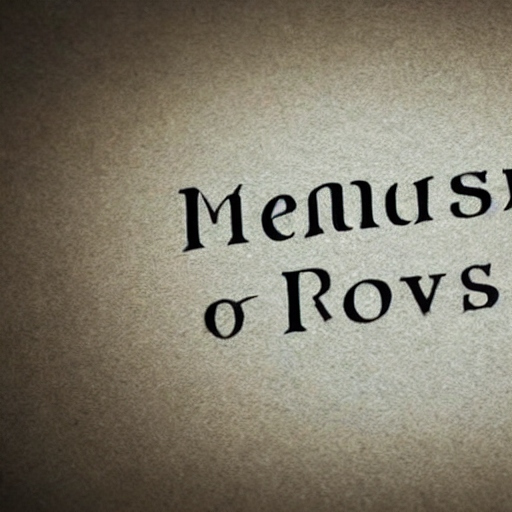
Word of today: glom
Class: verb | Syllables: GLAHM
Definition: To glom is to take or get something. Glom is most often used in the phrase “glom on to” to refer to taking something for your own use, becoming strongly attached to or associated with someone or something, or becoming aware of something.
Example(s):
// The book consists of a collection of humorous essays glommed from popular magazines.
// That author is known for glomming on to other people's ideas as if they were his own.
// Other business owners have not yet glommed onto the impact the new parking garage will have on the town.
Word of today: homily
Class: noun | Syllables: HAH-muh-lee
Definition: A homily is a usually short talk on a religious or moral topic. Homily may also refer to an inspirational catchphrase, or to a trite or stale remark.
Example(s):
// The calendar features serene photographs captioned by inspirational proverbs and homilies.
// We had to listen to another one of his homilies about the value of public service.
Word of today: cogent
Class: adjective | Syllables: KOH-junt
Definition: Cogent is a formal word that describes something that is very clear and easy for the mind to accept and believe, in other words “convincing.”
Example(s):
// At the town meeting, citizens presented many cogent arguments in support of building a new senior center.
Word of today: salvo
Class: noun | Syllables: SAL-voh
Definition: In military contexts, salvo refers to various actions involving discharge or release of bombs, rockets, artillery, etc., as well to the bombs or projectiles released in such an action. In general use, salvo is usually used to refer to a strong or sudden verbal attack, but it can also refer to a sudden occurrence of applause, laughter, etc., from many people.
Example(s):
// The troops were driven back by a salvo of cannon fire.
// The editorial's opening salvo was a list of grievances against the mayor's policies.
// The conclusion of her performance was answered with a salvo of cheers and applause.
Word of today: comprise
Class: verb | Syllables: kum-PRYZE
Definition: Comprise is a verb that first meant "to be made up of (something); to include or consist of (something)." It still carries that meaning but today it also often means "to make up or form (something)," though some object to this use. Comprise can also mean "to include especially within a particular scope."
Example(s):
// The city developers' plans include a massive recreational complex that comprises a concert hall, four restaurants, two hotels, and a theater.
// Bamboo comprises the bulk of the giant panda's diet.
Word of today: outlandish
Class: adjective | Syllables: out-LAN-dish
Definition: Outlandish describes things that are strikingly strange or unusual; in this use, it's a synonym of bizarre. Outlandish can also describe things, such as claims, rumors, and accusations, that go beyond reasonable limits or standards.
Example(s):
// One of the author's greatest strengths is her ability to write outlandish characters whose quirks remain lodged in readers' minds long after they've finished the book.
// When asked to back up his outlandish claims, the governor quickly changed the subject, all but admitting that he had no proof for his allegations.
Word of today: loquacious
Class: adjective | Syllables: loh-KWAY-shus
Definition: Someone described as loquacious might also be called wordy (prone to using more words than considered necessary when talking) or garrulous (tending to talking a lot).
Example(s):
// She's the loquacious host of a weekly news podcast.
Word of today: bon vivant
Class: noun | Syllables: bahn-vee-VAHNT
Definition: A bon vivant is a sociable person who has cultivated and refined tastes especially with respect to food and drink.
Example(s):
// She has become something of a bon vivant since moving to Paris, going out most nights and delighting in the city's many famous restaurants.
Word of today: thwart
Class: verb | Syllables: THWORT
Definition: Thwart means “to effectively oppose or prevent.” To thwart a person is to prevent them from doing something, and to thwart a thing is to stop it from happening.
Example(s):
// The campaign has successfully thwarted the effort to develop the land, which is now preserved in perpetuity.
// The hometown crowd erupted in cheers as their beloved team thwarted the postseason hopes of their archrivals.
Word of today: rectitude
Class: noun | Syllables: REK-tuh-tood
Definition: Rectitude is a formal noun that means “moral integrity or righteousness” or “the quality or state of being correct in judgment or procedure.”
Example(s):
// The keynote speaker encouraged the graduates to go on to live lives of unimpeachable rectitude and integrity.
// As treasurer of the club, she advocated a kind of fiscal rectitude that is widely credited with saving the organization from financial ruin.
Word of today: dog days
Class: noun | Syllables: DAWG-DAYZ
Definition: Dog days is a plural noun that refers to the hottest time of the year, which in the northern hemisphere is usually between early July and early September. Dog days can also refer to a period of stagnation or inactivity suggestive of hot, sultry weather when it can be difficult to summon the energy required for hard work.
Example(s):
// The kids swim every afternoon during the dog days of summer.
Word of today: abscond
Class: verb | Syllables: ab-SKAHND
Definition: To abscond is to leave, flee, or escape a place in secret and go into hiding. Often, someone is said to have absconded with something.
Example(s):
// The suspect absconded to Canada before investigators could reach her at home.
// He became concerned that one of his co-conspirators would abscond with the money.
Word of today: girandole
Class: noun | Syllables: JEER-un-dohl
Definition: Girandole can refer to an ornamental branched candlestick, as well as to a pendant earring usually with three ornaments hanging from a central piece. In its earliest uses, girandole referred to a radiating and showy composition, such as a cluster of skyrockets fired together for a fireworks display, or to a fountain issuing a rising column of spreading water.
Example(s):
// The newlyweds found the most gorgeous girandole at an antique sale and couldn’t wait to put it in their living room.
// She admired the girandoles and topknots of the characters in her favorite period piece.
// Seeing girandoles light up the night sky was his favorite part of the holidays.
Word of today: prowess
Class: noun | Syllables: PROW-us
Definition: Prowess refers to someone’s great ability, skill, or talent for something specified, as in “the pop star's vocal prowess” or “a lawyer of great prowess.”
Example(s):
// Already a proven virtuoso on guitar, she extends her considerable instrumental prowess to the piano throughout her new album as well.
Word of today: whimsical
Class: adjective | Syllables: WIM-zih-kul
Definition: Something described as whimsical is unusual in a playful or amusing way.
Example(s):
// Her younger sister’s whimsical sense of humor often leaves her friends giggling at the lunch table, as when she built a castle out of her mashed potatoes, complete with a moat.
Word of today: facilitate
Class: verb | Syllables: fuh-SIL-uh-tayt
Definition: To facilitate something is to help bring it about, as in "her rise to power was facilitated by her influential friends." In other words, facilitating something eases the way for it to happen smoothly and effectively.
Example(s):
// The moderator's role is to facilitate the discussion by asking appropriate questions.
Word of today: dyed-in-the-wool
Class: adjective | Syllables: dyde-in-thuh-WOOL
Definition: Someone described as dyed-in-the-wool has very strong, uncompromising beliefs or opinions.
Example(s):
// The festival was held in a remote, rural town, ensuring it would attract no one but the most dyed-in-the-wool bluegrass fans.
A bot toots Word of the Day from Merriam-Webster (https://www.merriam-webster.com/word-of-the-day)
Profile header and avatar are generated by AI from DeepAI (https://deepai.org/machine-learning-model/text2img)
Github Repo: https://github.com/AkiGoat/MWwordoftheday-bot
